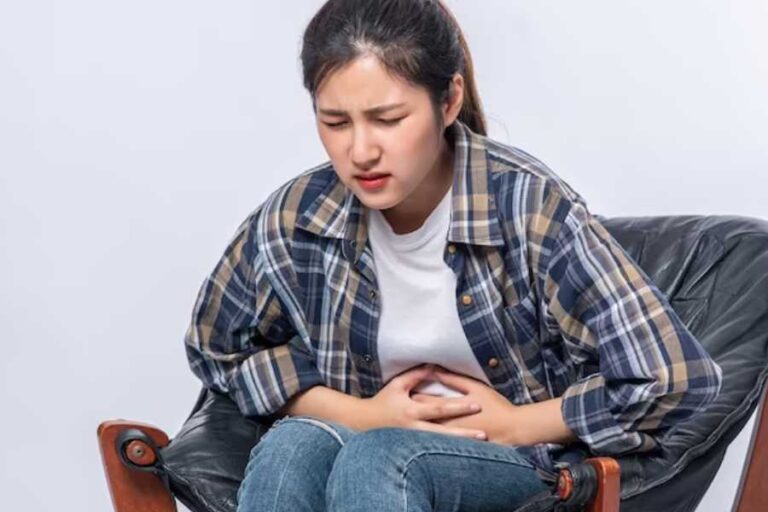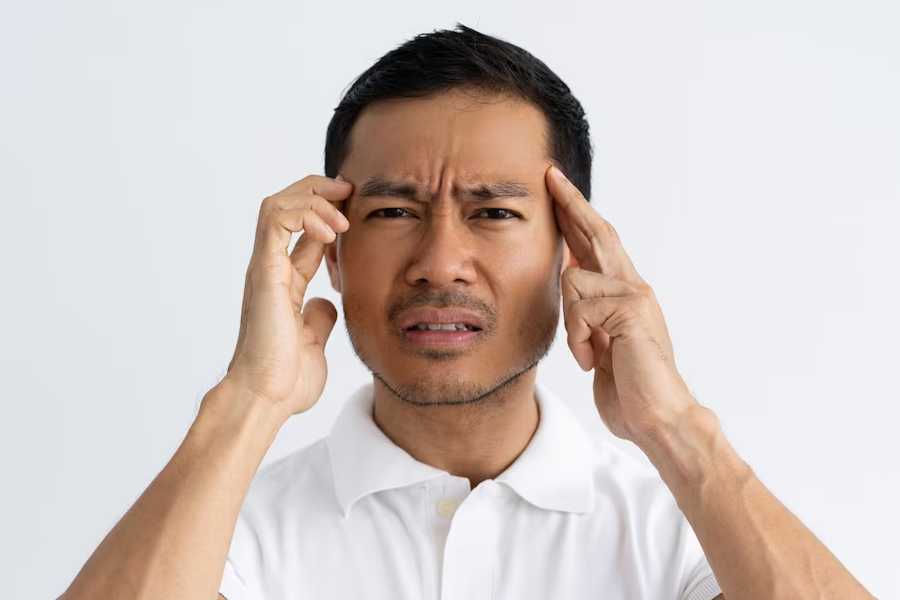
Hemorrhoids are a common condition that affects many people, but most don’t like to talk about it. However, recognizing and treating the symptoms of hemorrhoids is important for maintaining good health and avoiding more serious complications. When hemorrhoid symptoms become severe, seeking medical attention at urgent care in Fairfield, CT, can provide quick relief and prevent further complications.
While hemorrhoids are usually not serious, it’s important to recognize the symptoms and seek medical attention if necessary.
Hemorrhoids can cause discomfort, pain, and burning around the anus, especially during bowel movements. The pain may be sharp or throbbing and can be particularly severe if the hemorrhoid prolapsed, which means it has moved outside the anal canal.
Hemorrhoids can cause itching and irritation around the anus, which can be uncomfortable. This symptom is often associated with external hemorrhoids, which are located on the outside of the anal opening. Despite the discomfort associated with this symptom, seeking medical attention is essential to alleviate the discomfort and prevent further complications.
Swelling and inflammation caused by hemorrhoids can make it challenging to sit or walk comfortably. In some severe cases, the swelling can be so intense that it interferes with the performance of daily activities.
Bleeding is a common symptom of hemorrhoids and can occur during bowel movements. The blood may appear bright red or dark and may be noticed on the surface of the stool, in the toilet bowl, or on toilet paper. This can be alarming, especially if the bleeding is excessive.
Hemorrhoids can be classified into two types: internal and external.
Internal hemorrhoids reside inside the rectum and remain invisible from the outside. They are generally painless and may not be noticeable until they bleed during bowel movements. Internal hemorrhoids can be further categorized as grades 1 to 4, with grade 1 being the mildest form and grade 4 being the most severe. Some common symptoms of internal hemorrhoids include itching, rectal bleeding, and a feeling of discomfort or fullness in the rectum.
External hemorrhoids are located outside the anus and are visible. They can cause significant pain and discomfort, especially during bowel movements or when sitting for long periods of time. External hemorrhoids can also itch, bleed, or develop a blood clot.
While the exact cause of hemorrhoids is not fully understood, there are several factors that can contribute to their development.

While hemorrhoids are a common condition that affects many individuals, if left untreated, they can lead to serious complications. It is important to recognize the potential risks and complications associated with hemorrhoids to seek prompt urgent care in Fairfield, CT, if necessary.
Hemorrhoids that become clotted can cause severe pain and require medical attention. This condition is known as thrombosed hemorrhoids, and it occurs when a blood clot forms inside a hemorrhoid. The clot can cause the hemorrhoid to become inflamed, swollen, and painful, making it difficult to sit, walk or perform daily activities.
Hemorrhoids that become strangulated can cause tissue damage and require emergency medical attention. This condition is rare but can occur when the blood supply to an internal hemorrhoid is cut off. When this happens, the hemorrhoid may become trapped and unable to return to its normal position.
Chronic bleeding from hemorrhoids can lead to anemia, a condition where the body doesn’t have enough red blood cells. Anemia can cause fatigue, weakness, shortness of breath, and other symptoms that can impact daily life.
Chronic diarrhea from hemorrhoids can cause fecal incontinence, a condition where the rectum can’t control bowel movements. This condition can lead to embarrassment, social isolation, and a decreased quality of life.
Hemorrhoids can be a painful and uncomfortable condition, and if left untreated, they can lead to more serious complications. While many cases of hemorrhoids can be managed with self-care measures, there are situations where seeking urgent care is necessary.
It is crucial to seek medical attention if you experience intense pain or discomfort from your hemorrhoids, as this may indicate the presence of thrombosed hemorrhoids that require medical treatment due to their severe pain.
Heavy bleeding from your hemorrhoids may be a sign of a more serious condition, such as colorectal cancer, and requires urgent care in Fairfield, CT.
It is crucial to seek medical attention if you notice signs of infection, such as fever, chills, or swelling, as these symptoms may indicate that your hemorrhoids have become irritated or inflamed, leading to a higher risk of developing more serious complications.
When internal hemorrhoids protrude from the anus and cannot be reinserted, they are known as prolapsed hemorrhoids. If you are experiencing prolapsed hemorrhoids, it is crucial to seek urgent care in Fairfield, CT, promptly. This condition can cause discomfort and pain during bowel movements and may require medical treatment to alleviate the symptoms.
If you have chronic hemorrhoids that do not respond to self-care measures or home remedies, it’s important to seek medical attention. Chronic hemorrhoids can lead to more
serious complications and require medical treatment.
Your healthcare provider at urgent care in Fairfield, CT, will perform a physical examination and ask about your symptoms and medical history.
Treatment options for hemorrhoids depend on the severity of the symptoms and the type of hemorrhoid.
Rubber band ligation is a common in-office procedure used to treat internal hemorrhoids. During this procedure, a small rubber band is placed around the base of the hemorrhoid, cutting off its blood supply and causing it to shrink and fall off.
Infrared coagulation is another in-office procedure used to treat internal hemorrhoids. During this procedure, a small probe is used to apply heat to the affected area, causing the hemorrhoid to shrink and scar. This procedure is generally safe and effective, with minimal pain and discomfort.
Sclerotherapy is a procedure that involves injecting a chemical solution into the hemorrhoid, causing it to shrink and scar. This procedure is typically used to treat small internal hemorrhoids and is generally safe and effective.
Hemorrhoidectomy is a surgical procedure used to remove large or severe internal or external hemorrhoids. This procedure is generally safe and effective, but it may require a longer recovery time and can be more painful than other treatment options.
Self-care measures are often the first line of defense against mild cases of hemorrhoids. Here are some self-care measures that can help alleviate symptoms:

While some factors that contribute to hemorrhoids, such as genetics, are beyond our control, there are several lifestyle changes and habits that can help prevent the development of hemorrhoids. Here are some prevention strategies:
Mild cases of hemorrhoids may go away on their own with self-care measures and lifestyle changes. However, if left untreated, hemorrhoids can lead to complications such as thrombosis, strangulation, anemia, or fecal incontinence. It is important to seek medical attention if your symptoms persist or worsen.
The duration of hemorrhoids depends on the severity of the condition and the treatment received. Mild cases of hemorrhoids may go away within a few days to a week with self-care measures, while more severe cases may take several weeks to heal.
Yes, exercising can help prevent and alleviate symptoms of hemorrhoids. However, it is important to avoid activities that can increase pressure on the rectal area, such as heavy lifting or straining during exercises.
Mild cases of hemorrhoids can often be managed with self-care measures such as taking sitz baths, using topical creams or ointments, and making lifestyle changes. However, if your symptoms persist or worsen despite these measures, it is important to seek medical attention to determine the best course of treatment.
Yes, hemorrhoids can recur after treatment. To reduce the risk of recurrence, it is important to adopt healthy lifestyle habits such as eating a high-fiber diet, staying hydrated, and avoiding straining during bowel movements. Regular exercise and practicing good hygiene can also help prevent recurrence.
Recognizing and treating the symptoms of hemorrhoids is important for maintaining good health and avoiding more serious complications. Urgent care centers in Fairfield, CT, such as DOCS Urgent Care & Primary Care Fairfield, offer quick and effective treatment options for hemorrhoids. By adopting healthy lifestyle habits, managing hemorrhoid symptoms, and seeking medical attention when necessary, you can reduce the risk of hemorrhoids and enjoy better digestive health.

During this surge in COVID-19 cases, our primary focus is meeting the high demand for tests, and we are seeing higher than usual wait times. This means we are unable to answer most phone calls. Please know that our teams are working very hard during this time to care for as many patients as safely as possible. Please click the button below for answers to common questions. We appreciate your understanding.